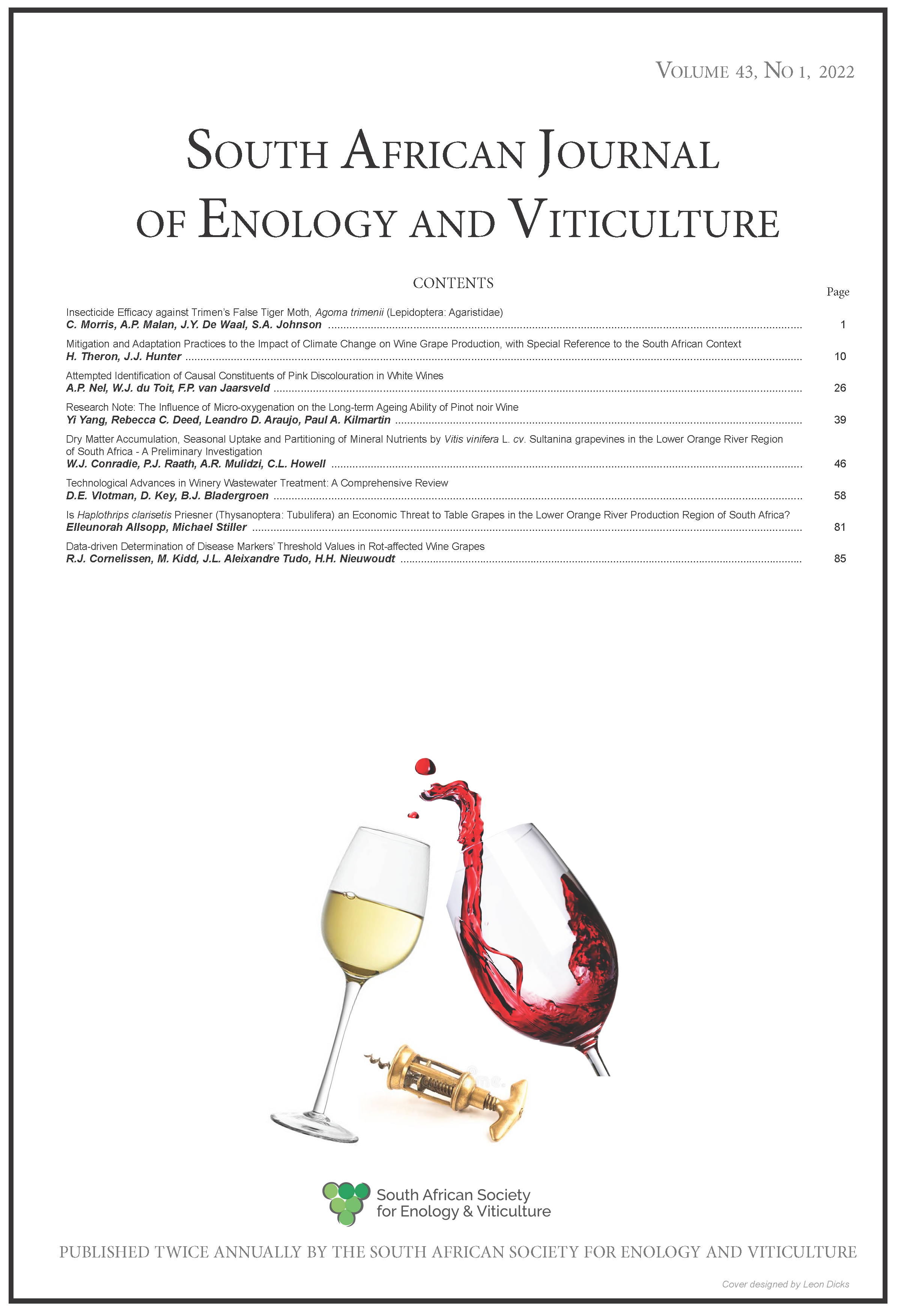Mitigation and Adaptation Practices to the Impact of Climate Change on Wine Grape Production, with Special Reference to the South African Context
DOI:
https://doi.org/10.21548/43-1-4735Abstract
In South Africa, environmentally and socio-economically sustainable wine grape production is promoted
by governmental and private initiatives. All the initiatives contribute to establishing a scientifically
based response strategy of agro-systems to ensure sustainable production under future expected climate
conditions. South African wine grape producers would probably have to cultivate their grapevines under
higher atmospheric CO2 levels and in warmer, mostly drier, conditions. Due to the projected increase in
climatic variability, an effort must be made to improve the resilience of vines against these environmental
conditions. Whole-vine functioning and balances should be considered when adjustments are made
to current long and short term cultivation practices. All practices should be aimed at promoting the
development of a deep, dense and buffered root system that is able to support a well-developed canopy
with optimal microclimate that would sustain a high yield of good quality. Mitigation and adaptation
strategies would most likely have to be region specific, and small scale terroir data, (which should include
both climate and terrain/soil information) may play a critical role in decision-making.
Downloads
Downloads
Published
How to Cite
Issue
Section
License
A copyright form will be e-mailed to the corresponding author when the manuscript has been accepted for publication.
In principle, the Author agrees to the following when he/she signes the copyright agreement:
I hereby assign to the SOUTH AFRICAN SOCIETY FOR ENOLOGY AND VITICULTURE (SASEV) the copyright of the text, tables, figures, supplementary material, illustrations and other information (the Material) submitted with the manuscript to be published in SOUTH AFRICAN JOURNAL OF ENOLOGY AND VITICULTURE (SAJEV) (the "Article"). The copyright becomes effective from the date the Article has been accepted for publication in SAJEV.
This is an open access journal, and the authors and journal should be properly acknowledged, when works are cited.
Author's may use the publishers version for teaching purposes, in books, theses, dissertations, conferences and conference papers.
A copy of the authors' publishers version may also be hosted on the following websites:
- Non-commercial personal webpage or blog.
- Institutional webpage.
- Authors Institutional Repository.
The following notice should accompany such a posting on the website: This is an electronic version of an article published in SAJEV, Volume XXX, number XXX, pages XXX - XXX, DOI. Authors should also supply a hyperlink to the original paper or indicate where the original paper (www.journals.ac.za/index.php/sajev/) may be found.
Authors publishers version, affiliated with the Stellenbosch University will be automatically deposited in the University's Institutional Repository SUNScholar.
Articles as a whole, may not be re-published with another journal.
The following license applies:
Attribution CC BY-NC-ND 4.0

